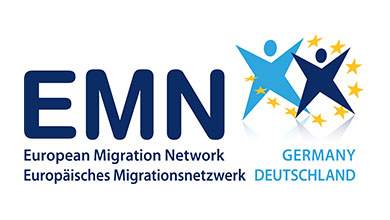EMN Inform: Access to education for migrant children ,

The EMN Inform demonstrates, that education plays a key role in integration, social participation and equal opportunities. The right to education is recognised in principle, regardless of residence status, in almost all EMN Member States and Serbia. In practice, however, structural and organisational barriers can still hinder access.
Among the greatest challenges are administrative barriers, such as missing documents, complex registration procedures, or unclear responsibilities. Children in asylum procedures or with insecure residence status are particularly affected. In addition, there are language barriers, insufficient resources, and sometimes a lack of intercultural competences within educational institutions.
Many countries are striving for improvements: languages support programmes, preparatory classes, and individual integration measures help newly arrived children to enter the education system. Early childhood education – that is access to kindergarten and preschools – proves to be crucial for later academic success. Nevertheless, children in migration often participate less frequently in such offers than native-born children.
Another central problem is the lack of reliable and comparable data. Without it, it remains difficult to systematically identify and address inequalities within the education system. At the same time, many Member States emphasize the importance of qualified teachers and school social work to ensure long-term integration.
Successful examples from several Member States show that an open, inclusive and individually supportive education policy is essential. Programmes that actively involve parents, promote intercultural exchange and provide early language and learning support for children contribute significantly to integration.
Despite positive developments, the report makes clear that structural challenges remain – such as teacher shortages, unequal resource distribution and the absence of long-term strategies. Education should be understood as a universal right and a key instrument of integration.
The EMN Inform calls for education systems across all Member States to be designed so that all children – regardless of origin, language, or legal status – have equal opportunities for learning, participation and a better future.
The EMN Inform is only available in English.

